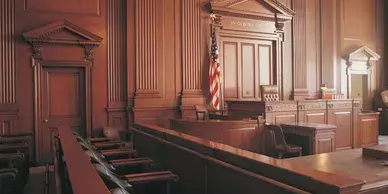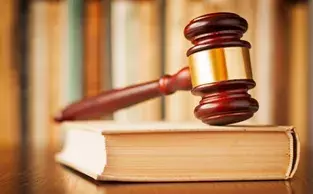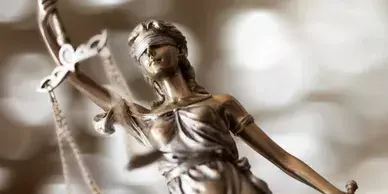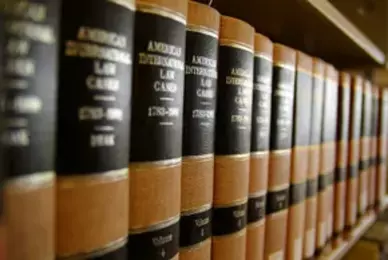ESTATE PLANNING
How our law firm can help you
Real estate management
We will assist in probating wills and administering the
estates of individuals who have passed away which include filing
federal tax returns
Representation of the executor
We help you if a friend or loved one has passed away
and you have been appointed as the executor or personal representative
of the estate.
Representation of the beneficiary
We represent you if you are the beneficiary of a will or trust and want
to be sure that the executor or trustee is fulfilling his or her fiduciary duties.
Avoiding the legalization of a will
We can also assist your family with the probate process, if applicable, by
creating an appropriate estate plan.
Probate Law/Probate processes
Probate law is a legal process that involves collecting a decedent's assets, notifying creditors, paying liabilities, and distributing remaining assets to heirs. We work to guide executors and administrators through the probate process and administration of a decedent's estate.
What is a trust?
A trust is an arrangement under which one person, called a trustee, holds legal title to the property of another person, called a beneficiary. You can be the trustee of your own trust while you are living, maintaining full control of all assets held in trust.
REASON TO ESTABLISH A TRUST
Definition
A will is a legal document that sets out your wishes regarding the distribution of your property and the care of any minor children. There are several types of wills. They include:
Self-test / testamentary will
A self-proving will, also known as a testamentary will, is the traditional type of will that most people are familiar with. It is a formally prepared document that is signed in the presence of witnesses.
Holographic Will
Holographic wills are written without the presence of witnesses. They rarely hold up in court.
The oral will
Oral wills are wills made before witnesses. They are not widely recognized from a legal perspective.
Do I need a will?
If you have a trust, you probably already have what's known as a "rollover will." It distributes most of your personal property that isn't included in your will.
Creating a will gives you complete discretion over the distribution of your assets. It allows you to decide how your belongings, such as cars or family heirlooms, will be distributed. If you have a business or investments, your will can direct the smooth transition of those assets.
If you have minor children, a will allows you to provide for their care. If you have children from a previous marriage, even if they are adults, your will can dictate the assets they receive. Creating a will also minimizes tensions between survivors. Relatives fighting over your possessions can weaken what might otherwise have been a strong family.
If you have a charitable bent, a will allows you to direct your assets to the charity of your choice. Similarly, if you wish to leave your assets to an institution or an organisation, a will can see that your wishes are carried out.
What the will does not cover
While wills typically address the majority of your assets, there are a number of items that are not covered by a will's instructions. These items include community property, proceeds from life insurance policy payouts, retirement assets, assets owned by joint tenants with rights of survivorship, and investment accounts that are designated as "transfer on death."
Avoiding the will
With or without a will in place, whoever inherits your property MUST go through a lengthy court process called Probate. This process typically applies to estates worth over $100,000, but even much smaller estates have to go through probate when there is no will; or even if there is a will but the distribution is in dispute.
Less expensive
How much does probate cost? The answer to that question is easy because attorney and executor fees are set by statute, namely California Probate Code §§ 10800, 10810. At the conclusion of probate, the Superior Court will award compensation as follows:
Four percent of the first $100,000 of the estate,
Three percent of the next $100,000,
Two percent of the next $800,000,
One percent of the next $9,000,000, and
Half of the next $15,000,000.
For estates over $25,000,000, the court will determine the fee for an amount greater than $25,000,000.
This means that a parent who passes away and leaves his beneficiaries a home valued at $500,000, without a trust, would also leave behind a bill of $13,000 for attorney fees, plus executor fees. A trust, on the other hand, typically runs much less. A small investment now can save your heirs literally thousands in the future.
Time, Time, Time ...
If the case has to go through probate, it can take months, even years. Whereas with a Trust there are no delays. Even if you are incapacitated, your successor, the Trustee, takes control of your trust without having to appoint a guardian.
You continue to control your assets
Depending on the type of Trust you create, you will continue to control your assets and direct how to use your funds in the event of your incapacity or after your death.
Inheritance tax
The right planned trust can reduce or eliminate the taxes your loved one may need to pay after your death.
This is a question many people ask when they begin planning how to distribute their assets to heirs or pay for long-term care expenses.
If you are considering your financial legacy and have a substantial amount in liquid assets such as cash or money in a bank account, assets that can be easily converted to cash or real estate, or if you need your child with special needs or are disabled or a senior who is considering qualifying for public benefits we are here for you.
Every situation is different and anyone considering estate planning should discuss it with an attorney.
If you do not have a will, when you die, you have died "intestate" (without a will). In such a case, the state (through the Superior Court) will oversee the distribution of your assets. Contrary to popular opinion, the state does not inherit your assets, but rather distributes them according to the California legal scheme. In California, the legal scheme often results in half of your estate going to your spouse and half to your children. Such a scenario can result in the sale of the family home or other assets, negatively impacting the surviving spouse. This can create financial and emotional hardship, particularly if your spouse relied on the bulk of your assets to maintain his or her standard of living. Further complications may arise if your children are minors, as the court will appoint a representative to look after their interests.
Tax considerations are another important issue to consider, as a properly prepared will can minimize tax liability. This is particularly important for people with large estates. In the U.S., assets exceeding $5 million (as of 2010 or later) are taxed when transferred from one person to another.
When you are ready to prepare a will, prepare a list of your assets and debts. Be sure to include the contents of safe deposit boxes, items of sentimental value, family heirlooms, and other assets you wish to transfer to a particular person or entity. If your estate is substantial (ranging into the millions of dollars) or your situation is legally complex, you will want to consult with our office before compiling your lists.
What happens after my will has been prepared?
The first thing is that you will have peace of mind that your estate plan is in place in the event of your death. However, if you ever need to change your will, that is not very difficult. Additionally, you will want to make sure that all the appropriate people are notified about your will (estate plan). Our office will help you with all of these and other questions. The bottom line, however, is that making a will is a necessary and usually fairly simple process that can save your family time, money, and grief, as well as give you peace of mind. Covina West Covina Baldwin Park
REASON TO ESTABLISH A TRUST
Another reason to create a trust is to make sure that your wishes are properly carried out after you pass away. For example, if you have several heirs (children, siblings, etc.), you will no doubt want to make sure that there are no fights between them over your property. You will also want to make sure that each of your heirs gets what you wanted them to have; or you will no doubt want to make sure that certain things happen when you die. For example, if you have several properties, you might leave one for your grandchildren, rather than leaving everything to your children. A trust is the right vehicle to accomplish such a goal. In addition, a trust can include clauses that limit (or condition) the amounts an heir receives. This can be helpful if one of your heirs is under 25 years of age (for example). I know that parents would be uncomfortable leaving considerable sums of money to a younger heir, or they might want the heir to reach a certain age, or attain a certain rank, before it is distributed under the trust. These are considerations that should be thought through and planned with your attorney. West Covina Baldwin Park will










